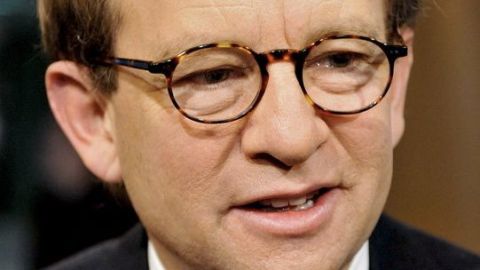Steven Rattner: Letting the Auto Industry Fail Would Have Been the “Economic Equivalent of an Atomic Bomb for the Midwest”

Financier Steven Rattner saved the U.S. auto industry. Or he didn’t. It depends on whom you ask. But either way, without government intervention last year, Rattner says the auto industry would have collapsed, and the result “would have been the economic equivalent of an atomic bomb for the Midwest.”
“You would have seen a million jobs disappear almost immediately,” he says. “You would have had ripple effects all through service providers and other kinds of businesses that depend on the auto sector for their income. You would have had massive unemployment; you would have had insolvency in states. It’s almost impossible to imagine how big the devastation would have been.”
In his Big Think interview, Rattner talks about his role as head of the auto task force, saying: “One of my colleagues likened it to Oceans 11, a group of professionals who come together, pull off a caper, as one of my colleagues like to call it, and then move on. I hope that’s how people feel about us. … I think some people, probably people in Michigan, still think of us as a bunch of Wall Street guys who came in and tore apart their iconic companies. But frankly, we felt their iconic companies needed tearing apart.”
Of Obama’s leadership style, Rattner says: “I found it very much on a par with some of the best CEO’s who I have ever worked with. He was decisive when his advisors had differences, he was supportive when they didn’t have differences.” Rattner says that Obama “was a decider in the end.”
From the position of his private equity firm Quadrangle, and a career in finance working for firms such as Lazard, Morgan Stanley and Lehman Brothers, Rattner talked about the state of the economy. “We are in a recovery,” he says, “I don’t believe we’re going to have a double dip recession, but the growth trajectory is definitely on the slow side, and most worrisome, of course, the unemployment rate is just not coming down very fast.”
On being an entrepreneur in the current economy, Rattner says: “First, you have to be completely committed and devoted to that enterprise, or project of whatever you take on. It’s not something you do in your spare time; it’s not something to do when you have a couple of other careers. It’s not something to do while you write your first novel. It’s something you just got to do.”
Having worked for the New York Times before entering finance, Rattner talks about the current state of the news. “I think there’s been a bit of dumbing down of journalism,” he says, “I think the whole sound-byte journalism, the blogosphere, the cable, the hyperventilated cable TV journalism, I’m not sure how great any of that is.”
As well, Rattner gives his advice on what he would do if starting his career now: “If I were starting my career again, I would go to China,” he says, “I think China is the real thing. I think it is the great future growth story of the world.”





